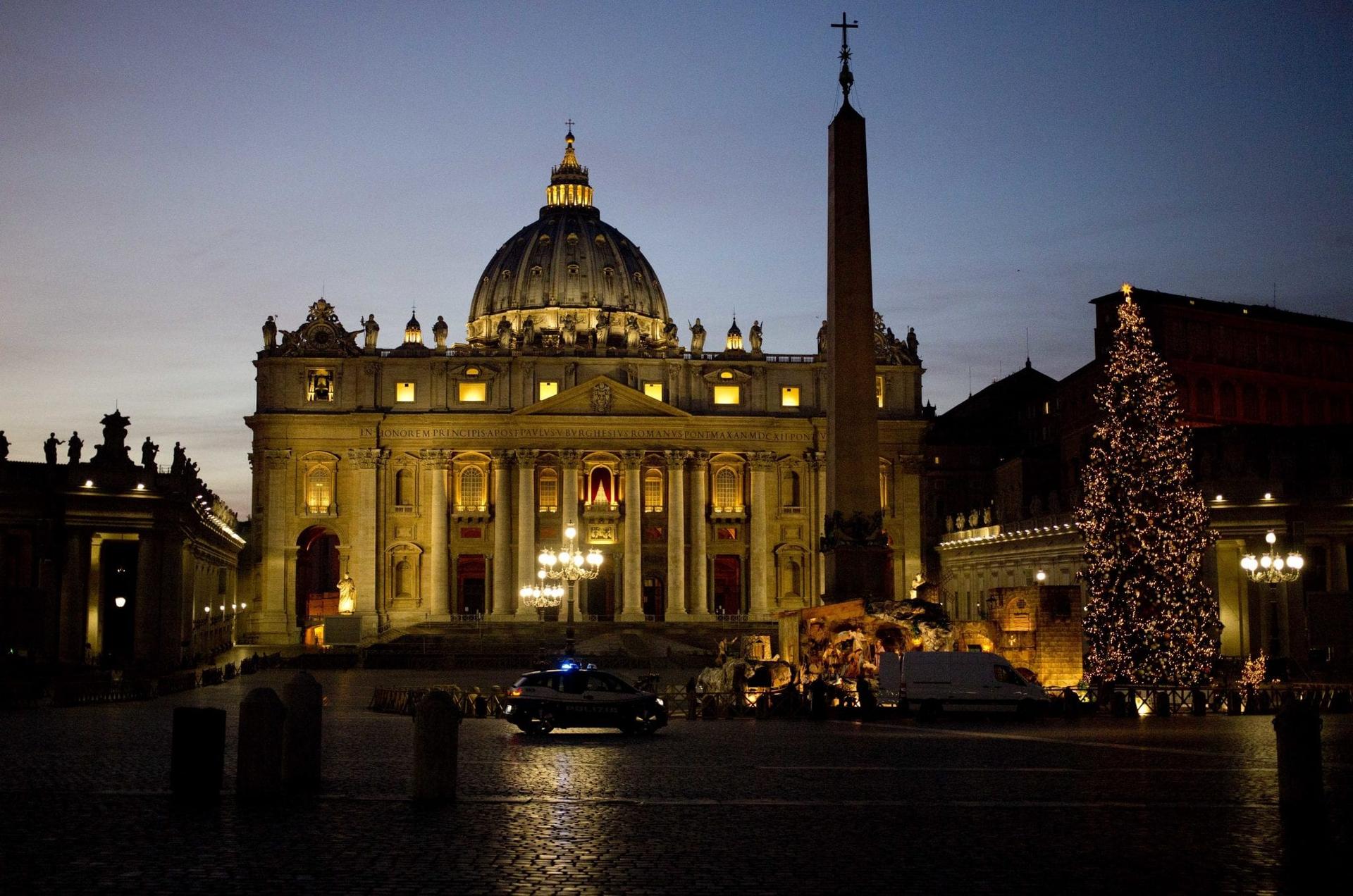ROME – Famous for his affection for the poor and for the peripheries of the world, both of the geographical and existential sort, Pope Francis emphasized on Christmas eve that God himself chose to become “peripheral” in order to begin the salvation of the entire world.
In the Christmas story, God “does not appear in the grand hall of a royal palace, but in the poverty of a stable; not in pomp and show, but in the simplicity of life; not in power, but in a smallness which surprises,” the pontiff said Saturday night while celebrating the traditional Christmas eve Mass in St. Peter’s Basilica.
“In order to discover him, we need to go there, where he is,” Pope Francis said in his brief homily. “We need to bow down, humble ourselves, make ourselves small. The Child who is born challenges us: he calls us to leave behind fleeting illusions and go to the essence, to renounce our insatiable claims, to abandon our endless dissatisfaction and sadness for something we will never have.
“It will help us to leave these things behind in order to rediscover in the simplicity of the God-child, peace, joy and the meaning of life,” the pope said.
Those are familiar themes for history’s first pope named Francis, for the medieval saint who was renowned for his love affair with “Lady Poverty,” and anyone who knows the mind of this pope would not have been surprised by his core Christmas message: God reveals himself not in power, but in weakness and poverty.
Francis immediately made the connection between the traditional Christmas narrative and the realities of today’s world.
“Let us allow the child in the manger to challenge us, but let us also allow ourselves to be challenged by the children of today’s world, who are not lying in a cot caressed with the affection of a mother and father, but rather suffer the squalid ‘mangers that devour dignity’,” he said.
Today’s children, he said, are found “hiding underground to escape bombardment, on the pavements of a large city, at the bottom of a boat overladen with immigrants. Let us allow ourselves to be challenged by the children who are not allowed to be born, by those who cry because no one satiates their hunger, by those who do have not toys in their hands, but rather weapons.”
The language about children “not allowed to be born” seemed a clear reference to abortion.
Francis said there’s an element of sadness to the Christmas story, because it recalls the distance between God’s promise of love and the bitterness of a fallen world.
“Today also the same indifference can exist, when Christmas becomes a feast where the protagonists are ourselves, rather than Jesus; when the lights of commerce cast the light of God into the shadows; when we are concerned for gifts but cold towards those who are marginalized,” he said.
Yet he ended by striking a note of hope, arguing that God’s love ultimately triumphs over the brokenness and cruelty of the world.
“His gentle light does not make us fear,” the pope said. “God who is in love with us, draws us to himself with his tenderness, born poor and fragile among us, as one of us.”
“Let us allow ourselves also to be challenged and convened tonight by Jesus. Let us go to him with trust, from that area in us we feel to be marginalized, from our own limitations,” he said.
“Let us touch the tenderness which saves. Let us draw close to God who draws close to us, let us pause to look upon the crib, and imagine the birth of Jesus: light, peace, utmost poverty, and rejection. Let us enter into the real Nativity with the shepherds, taking to Jesus all that we are, our alienation, our unhealed wounds,” he said.
Also on Saturday, the Vatican announced that the previous afternoon Pope Francis has made his way to the “Mater Ecclesiae” monastery on Vatican grounds in order to express Christmas greetings to emeritus Pope Benedict XVI, saying it was part of the “daily rapport” between the two men.
The Christmas eve liturgy was the beginning of a busy holiday season for Pope Francis.
Christmas day, the pontiff is scheduled to deliver his traditional Urbi et Orbi blessing, “to the city and the world.” On Monday, the feast of St. Steven, the pope will deliver a noontime Angelus address, and will conduct his usual General Audience on Wednesday.
The next Saturday, Dec. 31, the pontiff will lead a vespers service in St. Peter’s Basilica at 5:00 p.m. Rome time, followed by the singing of the Te Deum. Then the pope will go outside into St. Peter’s Square to visit the Nativity scene, pausing for a moment of silent prayer before the Christ child.
On New Year’s Day the pope will celebrate a Mass to observe what the Catholic Church marks as the World Day of Peace, and will also deliver a noontime Angelus address.
The Vatican traditionally considers the holiday season to close on Jan. 6, with the pope leading a Mass to mark the feast of the Epiphany.












